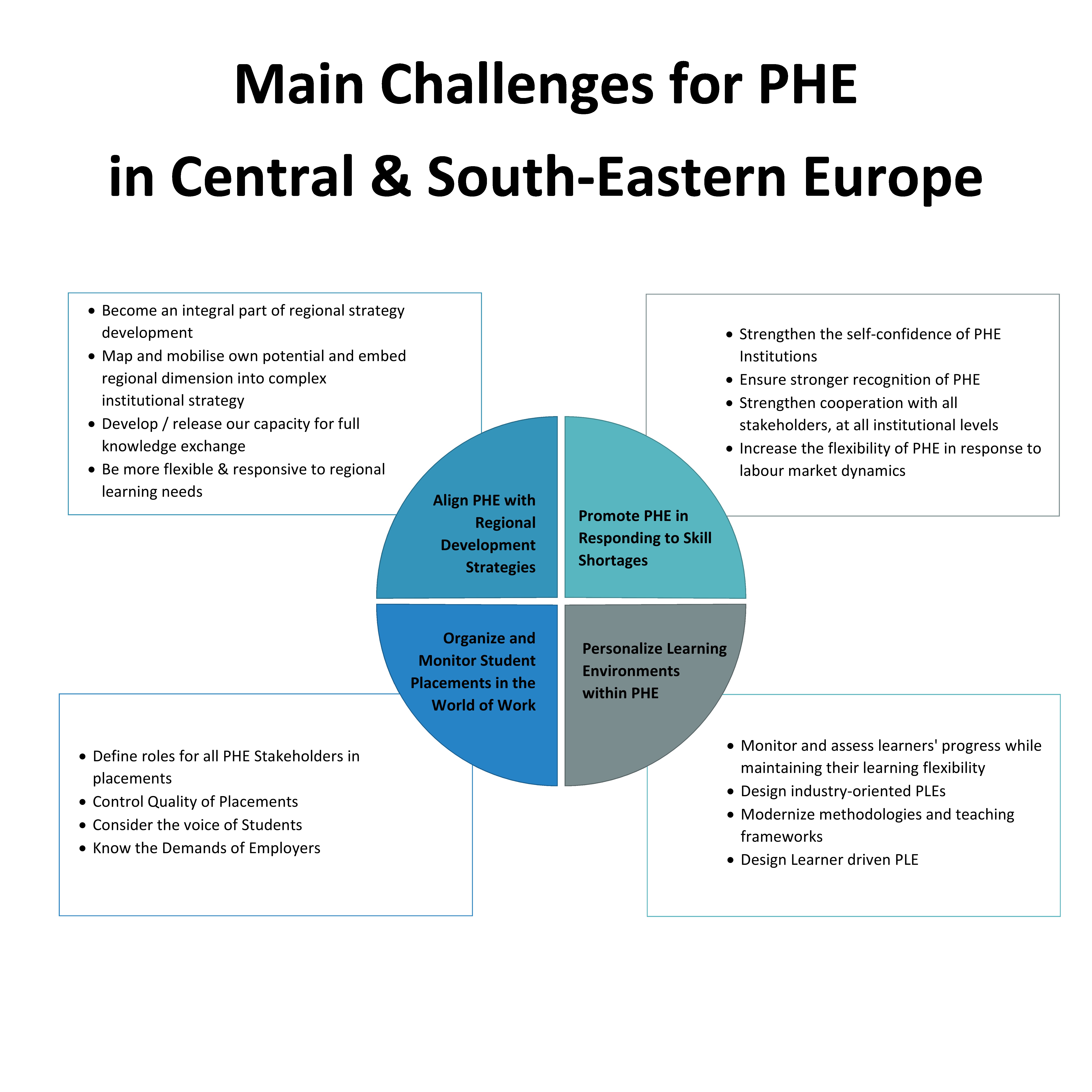Regional Challenges facing PHE discussed at the first PROCSEE Excellence Forum
The first PHE Excellence Forum was held from 28th September – 1st October 2016, in Logarska Dolina, Slovenia. The forum brought together about 40 experts from 12 countries around Europe to discuss challenges facing the PHE sector in central and south eastern Europe (CSEE).
The event is a direct followup to the meetings of the PHE Excellence National Committees which were held between May and September 2016 in each of the participating countries of the project. The forum tackled four thematic areas (Alignment of PHE with regional, local and economic development strategies; Promotion of PHE in Responding to Skill Shortages; Organizing and Monitoring Student Placements in the World of Work; Personal Learning Environments in PHE) of the project where experts shared and identified national, regional and European challenges and later conducted a root case analysis, so as to understand the factors which lead to perpetuation of barriers.
The final observations from the seminar were that while PHE is a sector full of latent potential and the sector faces few active barriers, PHE is caught in a cycle of middle-expectations whereby it wishes to be considered a more important regional stakeholder, but is unwilling to take the lead in establishing its position without incentives and support. Another observation that was pointed out was that of insufficient recognition of the value of a ‘sector’ with its own ‘voice’ and that PHE misses (the tools for) a narrative.
In the coming weeks, a “Policy Challenge Statement”, will bring together all the work that was done at the event, highlighting the main challenges facing Professional Higher Education in the region, together with the root causes that need to be addressed to move forward on those challenges.
Following this, the project will begin a process of collection of good practices, so as to identify successful policy interventions which have been applied to address the identified challenges anywhere in the world, and assess the possibilities for adapting the approaches for use in the specific situation of the CSEE region.



